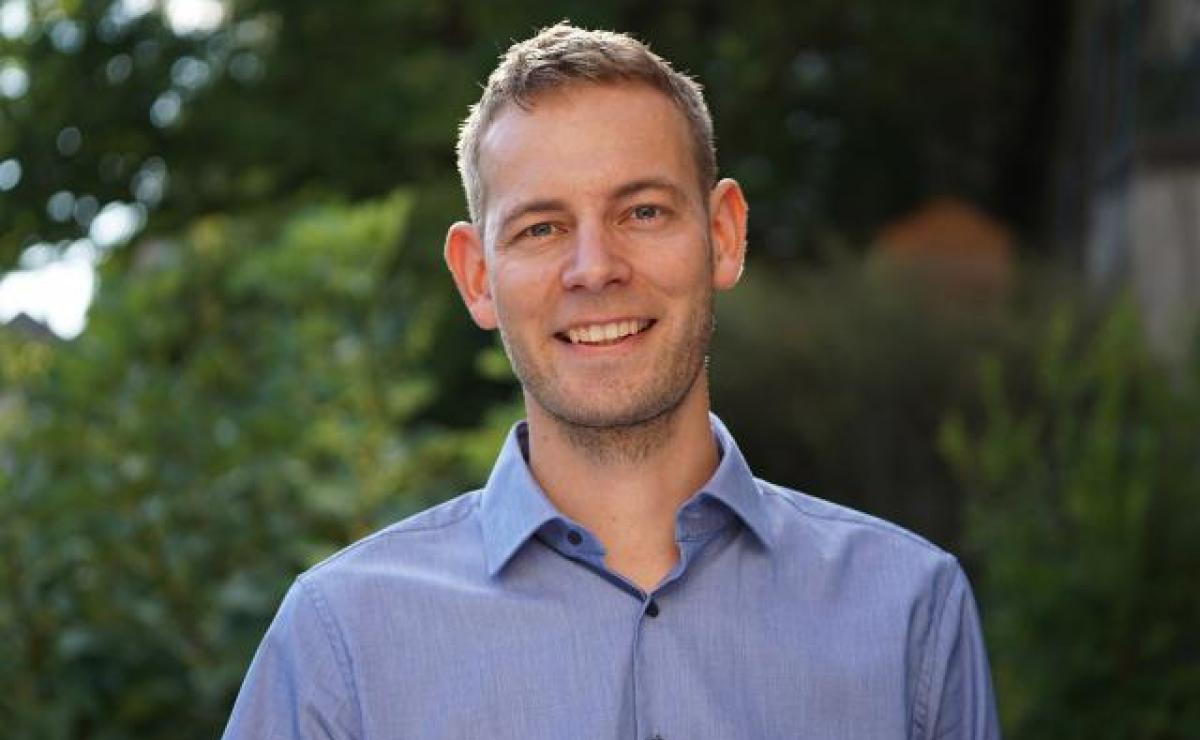Germany: Worship and the revival of churches

Voices from the Communion: Sebastian Bugs, chair of the GNC/LWF Youth Committee
(LWI) - "What needs to change in the church? And what should not be changed?" – Rev. Sebastian Bugs has been grappling with these questions long before he took up his first pastorate in September 2020. The 31-year-old is a member of the Youth Committee of the German National Committee of the Lutheran World Federation (GNC/LWF) since 2013. He has chaired the committee since the LWF Assembly in Namibia in 2017, where he participated as a youth delegate of the Evangelical Church in Württemberg.
In this interview Bugs talks about the "Revival of the churches" project that the GNC/LWF Youth Committee recently completed and documented in a video, as well as the needs and contributions of young people in church and society.
Where did the motivation come from for the GNC/LWF Youth Committee to work on the "revival of the churches"?
The themes mentioned in the Youth Message to the LWF Assembly in Namibia are vast and abstract and need to be transformed into local contexts around the world. We asked ourselves: How can renewal or revival become concrete here in Germany? The committee members agreed that worship would be an exciting topic to work on from that perspective.
How did you approach this project?
We had two important starting points that we wanted to relate to one another: On the one hand, the subjective perspective – our personal experiences. What worship culture do we feel at home in? Which worship services do we experience particularly positively or negatively, and why?
On the other hand, the objective perspective: general surveys and scientific studies. What well-founded sociological statistics are there on this topic? Who attends church services and why? Where are numbers increasing, and what are people increasingly moving away from?
This was a great approach, and every member of the youth committee could get involved in various ways.
What insights did you gain, also regarding intergenerational aspects?
First, we defined the question. We see the worship service as the central meeting place of the congregation. But how can this claim be maintained when, according to the findings of a broad-based membership survey, less than 5 percent of church members still attend worship services?
The questions this raised for us were: Does the future lie in worship services with specific target groups? Is dividing ourselves up to celebrate worship services by age, musical taste, family situation, or milieu the appropriate solution? And what binds us together when such a division is made? Where do Christians come together? At community festivals or church conventions?
These are a few of the many questions that our churches will have to deal with.
Intergenerational dialogue is undoubtedly important, but the underlying dispute is not only between young and old. There are indications that boundaries are often created by entirely different things, such as a worship service's musical design.
A significant study on confirmation work, particularly caught our attention. It revealed that many confirmands rate church services worse at the end of their confirmation period than at the beginning. This growing dislike of church services was also related to how strictly compulsory church attendance was regulated. The greater the pressure to attend church services, the more negatively they were perceived. In contrast, the "opportunity to actively participate" and "experiencing church services suitable for youth" were two factors that led to a more positive perception of church services.
What consequences do you draw from these findings?
My conclusion is that pedagogy aimed at "adapting" youth to an existing worship culture – i.e., pushing them to attend until they begin to like the service – is clearly futile and likely has always been.
To get youth excited about worship services, we need a pedagogy that teaches them how to create worship services themselves. Above all, they need space for their spirituality and the skills to use this space. To this end, our liturgical elements' background and meaning must be explained: The opening, the prayers, the sermon, the blessing. With this knowledge, youth can then reflect on how to worship, have a conversation with God, proclaim the Good News, or be assured of God's presence.
The principle underlying this pedagogy for confirmation work and worship services can also be applied to intergenerational dialogue in general and in the Lutheran World Federation. It does not work to force youth into an existing, unchanging system in the long run. All too often, young people in the church and elsewhere encounter an attitude of "they just don't know how things work yet". Many older office holders in the church seem to regard it as an indispensable affirmation of their own work that their younger successors continue to do everything the same way. But the world is changing too fast, and people are too different for this to work.
Thank God, we see other examples in many places in our churches: Traditions are not passed on as rigid forms; instead, they are linked to their meaning and values. Whoever passes something on in this way trusts the younger generation to either maintain or to change things. This is often not easy for the conveying generation, but I think this is the only way we as Lutheran churches can transmit our values and our faith.
What momentum did the COVID-19 pandemic give your project?
Of course, the central theme during the first few months of the pandemic was online worship formats. These worship services and devotions work well during a lockdown because it is better to worship digitally than not worshiping at all! Those who choose between a physical and digital worship service will probably prefer to select the in-person fellowship.
Digital formats will not replace in-person worship services – and no one wants them to. Nevertheless, the pandemic has given us a significant boost: We saw how much change is possible quickly. Suddenly, in many places, people were no longer asking if anything needed to change. They were only asking how we could adapt to these new circumstances. This is what we as a youth committee would like to see from our churches in the future as well: That there is less discussion about "if" and much more about "how."
The youth committee has completed this project. What happens now?
As young people in the church, our task is to continuously bring the topic of "change" into the conversation: Ecclesia semper reformanda. That is one reason for a youth quota in the LWF and we want to promote this in all areas of the church's work.
For good change to happen, two questions must be brought into the conversation: “What needs to change?” And: “What should not be changed?”
As a church, it is our mission to bring the gospel to the world. This world is changing rapidly, but the Good News always remains the same. We must stay faithful to Christ, our values, and our identity. At the same time, we must be close to people, understand and share their lives. We can only achieve this balance if young and old continue to talk about: What needs to change? What should not be changed?
As far as church services are concerned, a lot has already changed. A colorful worship landscape has long been established. This change will continue. For it to be a good change, we need to maintain the conversation about it.
Do you have a message for youth in other LWF member churches?
As members of the GNC/LWF youth committee and coming from the eleven LWF member churches in Germany, we feel at home in very different church services. Nevertheless, it has never been a problem to worship and attend services together. The fellowship is often more important than the fact that every hymn is to one's own taste.
If we want to shape the church together, we must repeatedly focus on what we have in common: Our common faith in Jesus Christ. Change is easier when everyone is clear about what will never change: Christ is the Church's foundation.
We must not forget that we agree on the big important things. Then it is easier for us not to lose sight of what is essential in all the discussions about the details: To proclaim Christ.
By LWF/A. Weyermüller. English translation and editing LWF/A. Weyermüller
Video documenting the GNC/LWF youth project on "Revival of churches"
The Lutheran World Federation is a global body that shares the work and love of Christ in the world. In this series, we profile church leaders and staff as they discuss topical issues and set out ideas for building peace and justice in the world, ensuring the churches and communion grow in witness and strength.
